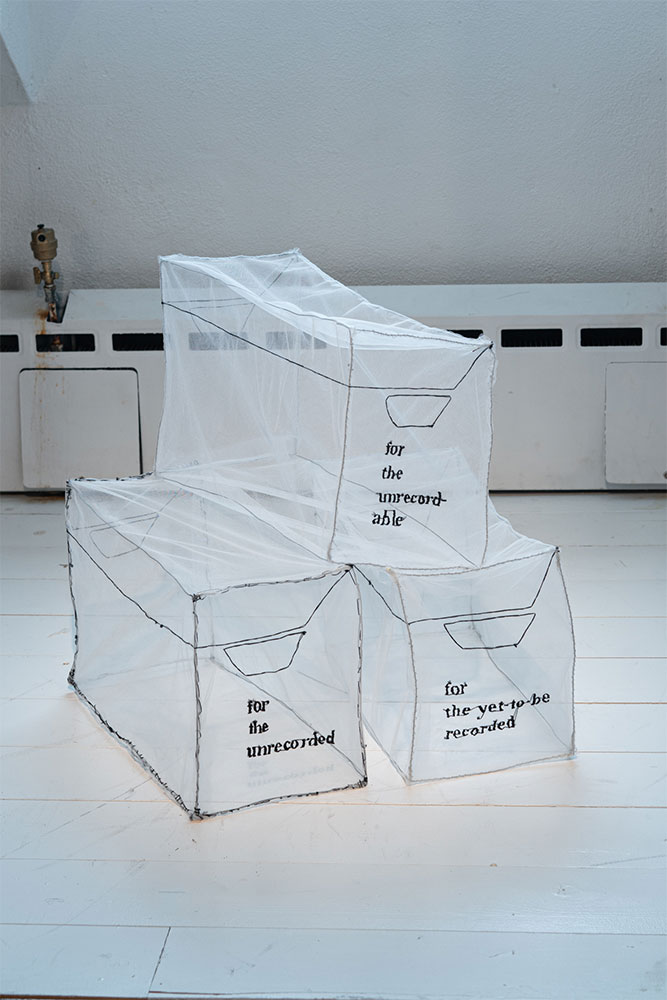March 4

Taking inspiration from questions posed in the exhibition ‘Mnemonic silences, disappearing acts‘, this class engages with ‘the absences, erasures, and censorships’ that shape queer and trans archives. It also focuses on calls for innovation, creativity, and speculative thinking/fabulation to document, story, and keep the memories of queer and trans peoples. What happens when the archive, ratified as the bona fide memory-keeper, forgets us? How does one create archives out of such erasures and silences, to document histories of activism rendered illegible or obscure? “How can our albums and archives gesture toward what has been lost and forgotten, toward the many lives that remain obscured, unknown, and unthought?” (Marianne Hirsch). What are the possibilities of digital technologies and performances of queer joy?
Guest Speaker: Yara Ahmed is a PhD student at the University of British Columbia in the Gender, Race, Sexuality and Social Justice Institute, whose research interests include affect and the everyday, mobility, and queer theory.
Hosts: Chaimae, Su, Paula, and Zoha
Readings
Spend some time on these two websites: Queering the Map and The South Asian Digital Archive Read any of the following 3 articles:
- Dragojlovic, A., & Quinan, C. (2023). Queering memory: Toward re-membering otherwise. Memory Studies, 16(1), 3-11. https://doi.org/10.1177/17506980221141992
- Mikdashi, M., & Puar, J. K. (2016). Queer Theory and Permanent War. GLQ: A Journal of Lesbian and Gay Studies, 22(2), 215–222. https://doi.org/10.1215/10642684-3428747
- Manalansan, M. F., IV. (2014). The “Stuff” of Archives: Mess, Migration, and Queer Lives. Radical History Review, 2014(120), 94–107. https://doi.org/10.1215/01636545-2703742
- Watson, Ash, et al. “What matters in the queer archive? Technologies of memory and Queering the Map.” The Sociological Review 72.1 (2024): 99-117.
- Brown, Elspeth H., and Sara Davidmann. ““Queering the Trans✲ Family Album” Elspeth H. Brown and Sara Davidmann, in Conversation.” Radical History Review 2015.122 (2015): 188-200.
Further Reading
- EVERYTHING FOR EVERYONE: AN ORAL HISTORY OF THE NEW YORK COMMUNE, 2052–2072 (chapter: “Kawkab Hassan on Liberating the Levant”)
- The Queer Arab Glossary
- Khalid Abdel-Hadi. My Kali – Digitising a Queer Arab Future in This Arab is Queer
- Queering Archives: A Roundtable Discussion
- Orr, Bek J. “Introduction: Feminist engagements with the queer archive.” Journal of Feminist Scholarship 19.19 (2021): 1-6.
- Chen, M. Y. (2010). Everywhere Archives: Transgendering, Trans Asians, and the Internet. Australian Feminist Studies, 25(64), 199–208. https://doi.org/10.1080/08164641003762503
- Takweer: https://www.instagram.com/takweer_/?hl=en
- Parker, Alan. “Twelve (Queer) Labours: The mundane as catalyst for the archiving of queer transgressive joy.” Performance Research 28.4 (2023): 42-50.
- Turning archival: the life of the historical in queer studies (introduction?)
- TArellano, Lisa. ‘Remembering Pulse.’ Violence and Public Memory. Routledge, 2023. Chapter 9, 193-208. UBC Library online.
- Fobear, Katherine. ““I Thought We Had No Rights”–Challenges in Listening, Storytelling, and Representation of LGBT Refugees.” Studies in Social Justice 9.1 (2015): 102-117.
- Pascha Bueno-Hansen, ‘The Emerging LGBTI Rights Challenge to Transitional Justice in Latin America’, International Journal of Transitional Justice 12, no. 1 (2017): 126–45.
- Nicole Maier, ‘Queering Colombia’s Peace Process: A Case Study of LGBTI Inclusion’, The International Journal of Human Rights (2019): 1–16.
- James, R. (2017). An evolution in queer indigenous oral histories through the Canada Indian residential school settlement agreement. The International Journal of Human Rights, 24(4), 335–356. https://doi.org/10.1080/13642987.2017.1347354
- Nagle, J. (2019). Frictional encounters in postwar human rights: an analysis of LGBTQI movement activism in Lebanon. The International Journal of Human Rights, 24(4), 357–376. https://doi.org/10.1080/13642987.2019.1619550
- Altınay, Ayşe Gül, et al., eds. Women mobilizing memory. Columbia University Press, 2020.
ÇaliŞkan, Dilara. “‘ Nobody Is Going To Let You Attend Your Own Funeral’: A Funeral for a Trans Woman and Naming the Unnamed.” Women Mobilizing Memory, edited by Ayşe Gül Altýnay et al., Columbia University Press, 2019, pp. 206–18. JSTOR, http://www.jstor.org/stable/10.7312/alti19184.15. Accessed 2 Jan. 2025.
https://lgbtpurgefund.com/
Presentation
Transgender Day of Remembrance + the https://lgbtpurgefund.com/